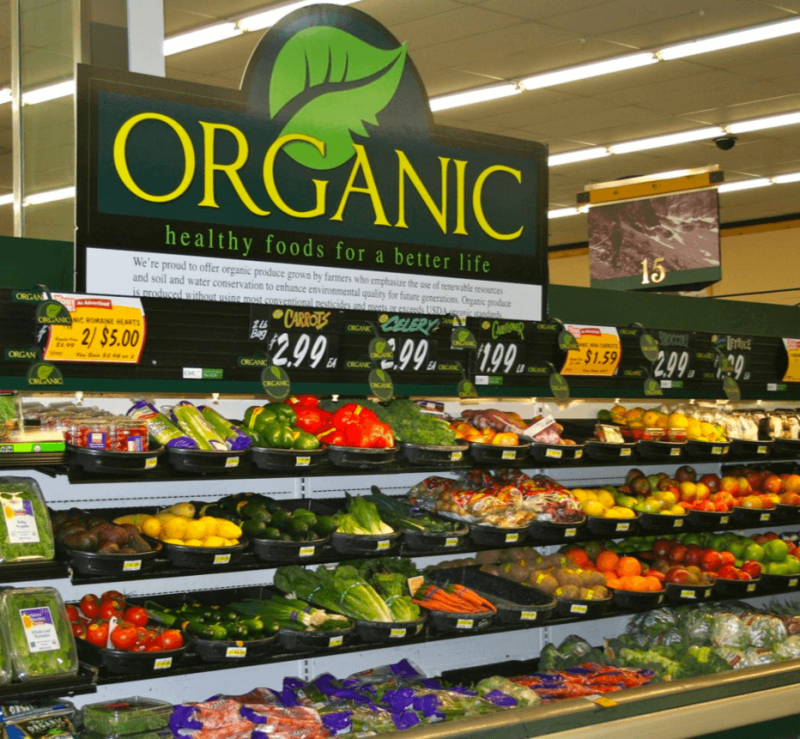Steve Savage recently published a thoughtful, informed, wide-ranging article explaining “Why I don’t buy organic” in Forbes Magazine (Editor’s note: It was re-posted on GLP too). If you are not among the thousands who have read this article, you might want to join them. And take a look at the comments and his responses. And add his blog, Applied Mythology, to your reader.
It also seems an appropriate moment to re-publish, with a few minor amendments, a post I wrote on the same subject back in 2009. It was prompted by Russ Parsons, then in charge of the food section at the LA Times who published a piece beginning “I don’t believe in organic,” that just flew around the social networks.
_________________
At a party around 2000, my mother, then in her late 80s, tasted a cheese she loved. The host told her it was made in a remote English downland village just ten miles away. My mother really wanted that cheese. Since she found walking difficult, I was dispatched to seek it out in the market and all the local gourmet stores. Total failure.
Then my mother heard that the giant British supermarket chain Tesco was selling it as part of their “local” campaign. She thought she could manage Tesco, with its handicapped parking and carts to hang on to.
I was terrified someone would knock my mother over, so frail had she become. But we made it to the cheese counter. Sure enough the cheese was there. The girl started cutting a wedge, helpfully commenting: “It’s organic.”
My mother was a farmer’s wife and very picky about her food. She never ate an egg of unknown parentage, never ate broiler chicken because she disliked the smell of broiler houses, never ate bread that did not come from a baker she trusted.
Even so, she was not about to buy organic cheese. Drawing herself up to her full but much shrunken height, my mother let fly in her still vibrant voice:
“I DON’T EAT ORGANIC FOOD.”
Surrounded by puzzled onlookers, we made our way out of the supermarket without the cheese. It was her last outing.
Her outcry was not a whim, not incipient dementia. It was the well-considered opinion of someone who had been a farmer’s wife for 50 years.
Less you suspect that the farm was some dreary monoculture that needed fertilizer and pesticide to keep going, far from it. It was what was called mixed dairy and arable, standard in England at the time. Ploughland growing wheat, barley, beans, kale for cattle feed, and grass for seed was rotated with grassland that supported a dairy of 100 cows and the offliers (calves, yearlings, cows that were not in milk).
Timely and careful applications of fertilizer were needed to maintain the needed fertility even though every bit of the dung of those cows went back on the fields. Applications of pesticide rescued the day when a field of wheat just a few inches high was discovered heaving with the larvae called leatherjackets.
My parents, and most farmers they knew, felt, and I agree with them, that far from being the right and moral thing to do, going organic is a blind alley for food lovers and hungry people alike. They did not think it could produce enough food. Or safer food. Or tastier or healthier food. And they thought consumers were being confused about what it offered. My mother thought it important to speak out against organic whenever she had the chance.
I now know a little more about the background. The early organic campaigners in the United States wanted large agriculture dismantled in favor of small, labor intensive, chemical-averse farms. Good discussions can be found in Warren Belasco’s classic Appetite for Change (1989), ch. 4 and more recently in Julie Guthman’s Agrarian Dreams (2004), ch. 6.
The campaigners could not get a wholesale re-working of agriculture to fly politically. The current laws about organic were a compromise. The narrow legal definition of organic now in force in many countries usually boils down to “no synthetic chemicals,” though how this is spelled out varies from nation to nation. So no chemical fertilizer, pesticides, herbicides, or (sometimes) antibiotics.
Because the anti-modern agricultural movement was against large, mechanized farms, they were horrified, not happy, when big farms began growing organic vegetables and big chains such as Walmart began selling them.
In short, organic legislation was not put in place to improve life for consumers. It was a political compromise between those who deeply distrusted modern agriculture and those involved in it. A no-chemical policy and an anti-modern agriculture policy are misguided ways to go about getting all the things we want–good tasting food, morally acceptable food, food adequate to feed the growing global population.
This article originally appeared on her blog here and was reposted with permission from the author.
Rachel Laudan has a doctorate in history & philosophy of science from University College, London. She has written numerous articles, publications and books on the history of science, technology and food. She can be followed on twitter @rachellaudan.































